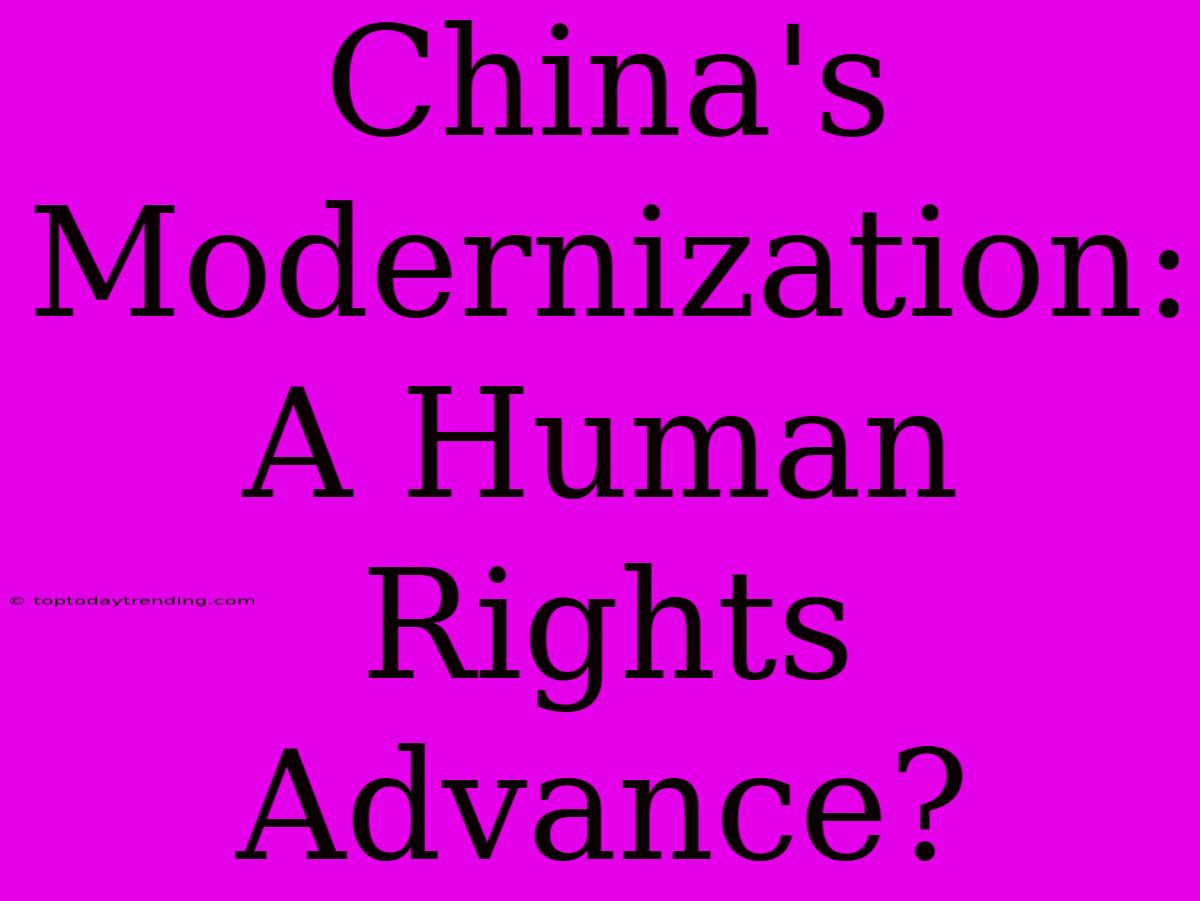China's Modernization: A Human Rights Advance?
China's rapid modernization over the past few decades has been nothing short of remarkable. From a predominantly agrarian society, it has transformed into a global economic powerhouse, boasting technological advancements and a growing middle class. However, this remarkable progress has been accompanied by complex questions regarding the state of human rights in China.
The Narrative of Progress: Economic Development and Social Advancement
The Chinese government argues that its modernization drive is directly linked to improved living standards and human rights advancements. The narrative focuses on:
- Economic growth: China's economic miracle has lifted millions out of poverty and provided access to education, healthcare, and social services.
- Infrastructure development: Massive investments in infrastructure have improved connectivity and access to basic amenities.
- Technological advancements: China is a leader in technology, with advancements in artificial intelligence, renewable energy, and space exploration, which contribute to overall societal progress.
The Other Side of the Coin: Human Rights Concerns
While the narrative of progress holds weight, concerns regarding human rights remain significant:
1. Restrictions on Freedoms:
- Freedom of Speech and Expression: Strict censorship laws stifle dissent and limit access to information. The Great Firewall of China blocks access to numerous websites and social media platforms.
- Freedom of Assembly and Association: Public protests and gatherings are heavily restricted, and independent organizations face severe scrutiny.
- Freedom of Religion: Religious practices, particularly those outside state-approved organizations, are often monitored and limited.
2. Human Rights Abuses:
- Repression in Xinjiang: The ongoing mass detention of Uyghurs and other Muslim minorities in Xinjiang raises concerns about cultural genocide, forced labor, and systematic human rights violations.
- Crackdown on Hong Kong: The increasing restrictions on freedoms and autonomy in Hong Kong have eroded the region's "one country, two systems" framework, sparking international criticism.
- Surveillance and Data Collection: China's extensive surveillance network, coupled with facial recognition technology and data collection, raises concerns about privacy and individual liberties.
3. Legal System and Due Process:
- Lack of Judicial Independence: The Chinese judicial system is subject to political influence, raising concerns about fair trials and due process.
- Arbitrary Detention and Torture: Reports of arbitrary detention, torture, and mistreatment of political prisoners and dissidents persist.
The Ongoing Debate: Balancing Development and Human Rights
The modernization of China presents a complex dilemma. While economic growth and technological advancement are undeniable achievements, they are often achieved at the expense of fundamental human rights.
Critics argue that China's development comes at a high cost to human dignity and freedoms. They call for greater transparency, accountability, and respect for internationally recognized human rights standards.
Proponents maintain that China's approach is unique and context-specific, arguing that economic development is a necessary condition for improving human rights in the long run. They point to China's poverty reduction efforts and social welfare programs as evidence of progress.
The future of human rights in China hinges on the government's willingness to address these concerns. Whether China can achieve true modernization while respecting human rights remains a pressing question.
Further Research:
- Human Rights Watch: Provides comprehensive reports on human rights in China.
- Amnesty International: Documents human rights violations and advocates for justice.
- China Labor Bulletin: Focuses on labor rights and worker exploitation.
- The Committee to Protect Journalists: Monitors press freedom and censorship in China.
This article provides a brief overview of the complex relationship between China's modernization and human rights. Further research is encouraged to gain a deeper understanding of the specific challenges and debates surrounding this crucial topic.

